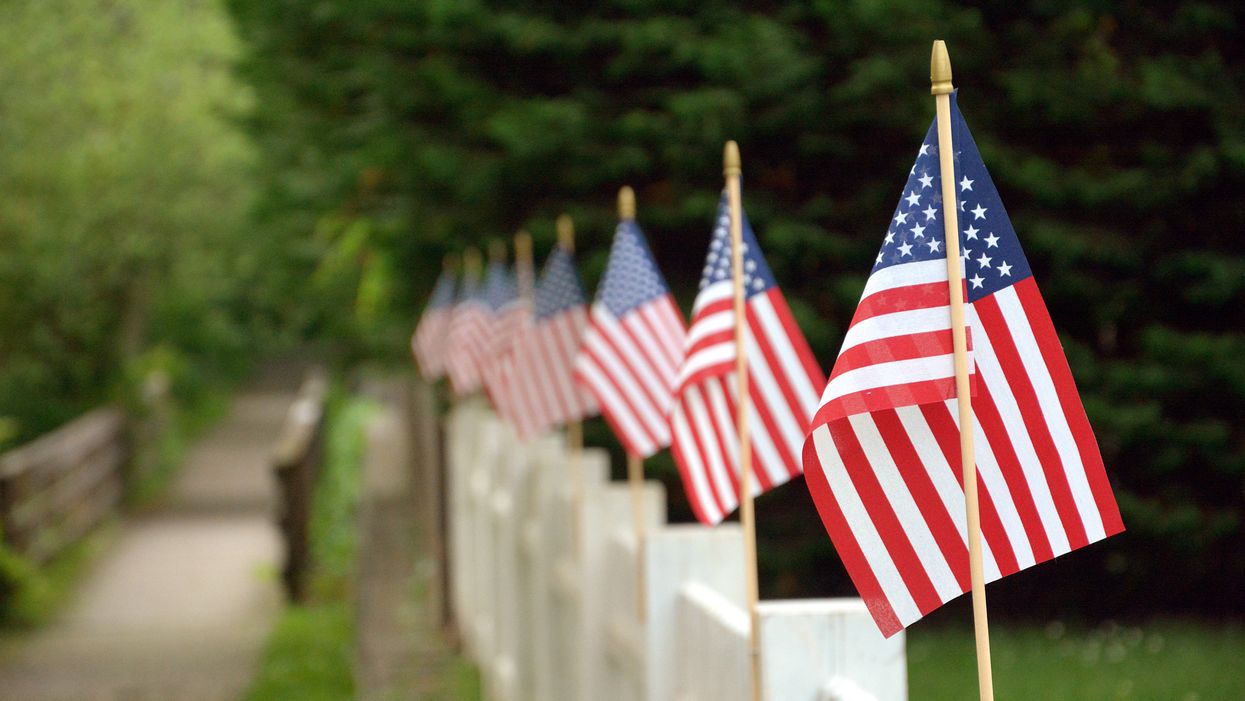Molineaux is president of the Bridge Alliance, a coalition of more than 100 civic engagement and democracy reform groups. (Disclosure: The Bridge Alliance Education Fund is a funder of The Fulcrum.)
While many of my friends — across the political spectrum and in varying corners of our current politics — agitate, calculate, dominate and become irate, I claim kinship with them all. I see our broken hearts, our disappointment, our pain and suffering. I see our pride, our gumption and innovation. I share our collective feeling of anxiety mixed with dread for what may be next. And still, I carry hope.
We are a raucous American family. While we talk about divorce in terms of civil unrest and civil war, like a good marriage counselor I am asking: What are we fighting for? And what are we protecting against?
I carry the hope for our nation by advocating in favor of so many of our democratic values. That we citizens are bound to one another. And that no one is above the law. That our elected officials are public servants. And that the public should be protected by a system of checks and balances that prevents the unmitigated pursuit of power for its own sake. That power in the United States government must always be in service to the people. And that goes for all the people, not a privileged few. Finally, our bond grows stronger as a nation when we trust one another and share mutual association.
I carry the hope for our nation along with all those others working to protect against the forces of division — and to protect against the intolerance of those who wish to memorialize their power and advantage over others. I work to protect against rigidity of thought that obstructs, and against advancement so rapid we lose our tradition and sense of American identity. (These are the failures globally that did not allow us to prevent the Second World War.)
The Constitution was a reaction to the tyranny of and absolute power granted to a single man. The framers wanted power for themselves, separate from King George III. This is fact, as is their dismissal of non-white people and women as subservient — and enslaved to the framers' expression of liberty. They were the underdogs in a power-hungry world. The David against the Goliath of English colonization.
Despots hold absolute power. It is a term reserved for those who exercise their power in a cruel or oppressive way. Today we face the possibility of a despotic ruler in the United States for the first time in our lives and perhaps the first time in American history.
For a nation that has promised "life, liberty and the pursuit of happiness," we have fallen short and that is the source of our agitation, cogitation and irritation. It is also the source of our broken hearts, ruptured relationships and disappointment in our chance at a better life.
Freedom is the promise of our now-amended Constitution to every person. And freedom is now experienced by more people around the world than at any time in history. As humans, we long for freedom but freedom comes with a price tag. We have to protect it, tolerate others and compromise to avoid the sort of despotic rule that provides privilege to some while punishing others.
If we look to a leader in the United States to punish others, we have already lost freedom. And as history proves, despots will grab the power -- without any intention of its return to the people. If you have given your support to a leader who states that opponents are enemies and should be punished, you have given your power away by no longer supporting democratic values. You have chosen a leader who prioritizes power over democracy.
I carry the hope for our nation by remaining a free person, open-hearted and open-minded about our collective future. Will you join me?




















Trump & Hegseth gave Mark Kelly a huge 2028 gift